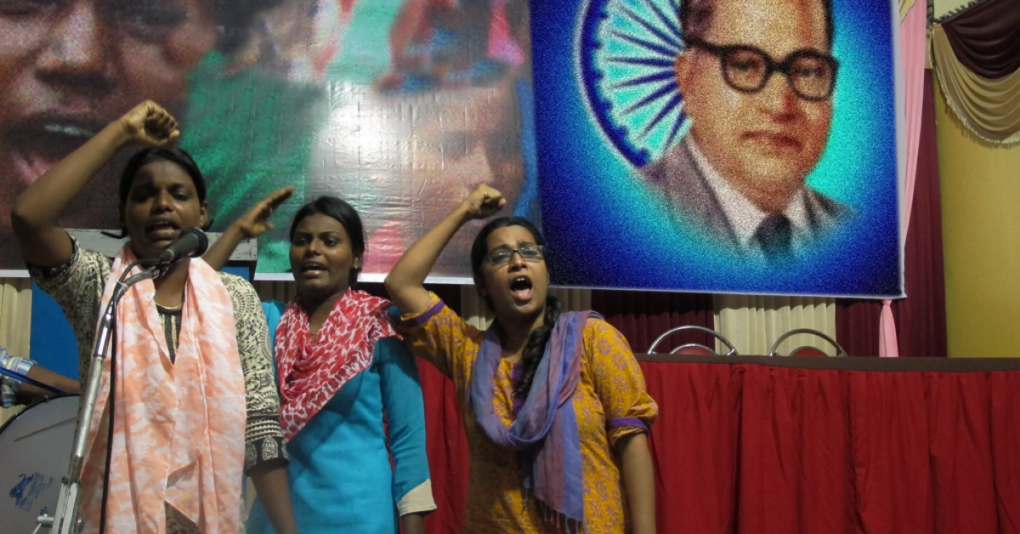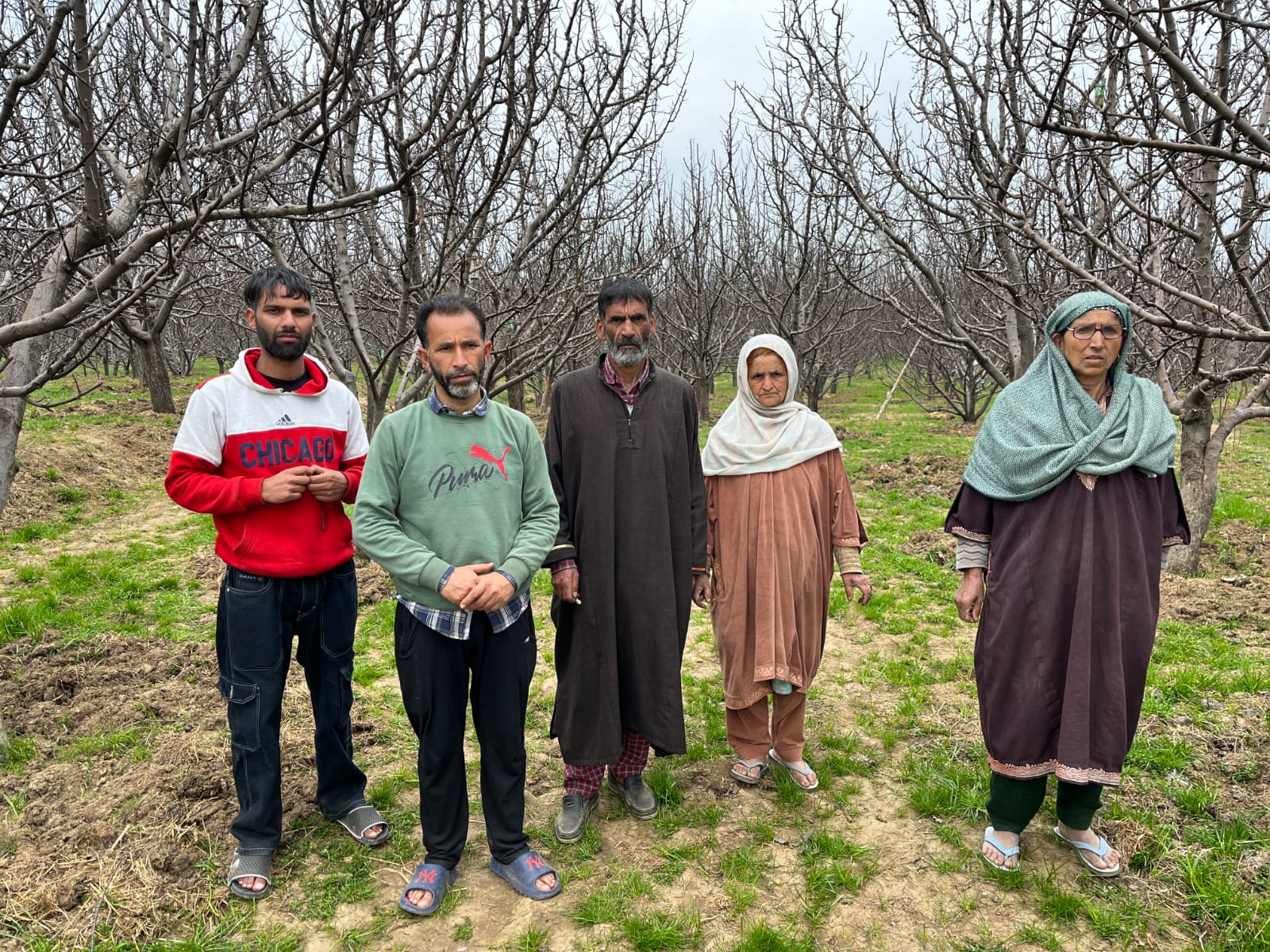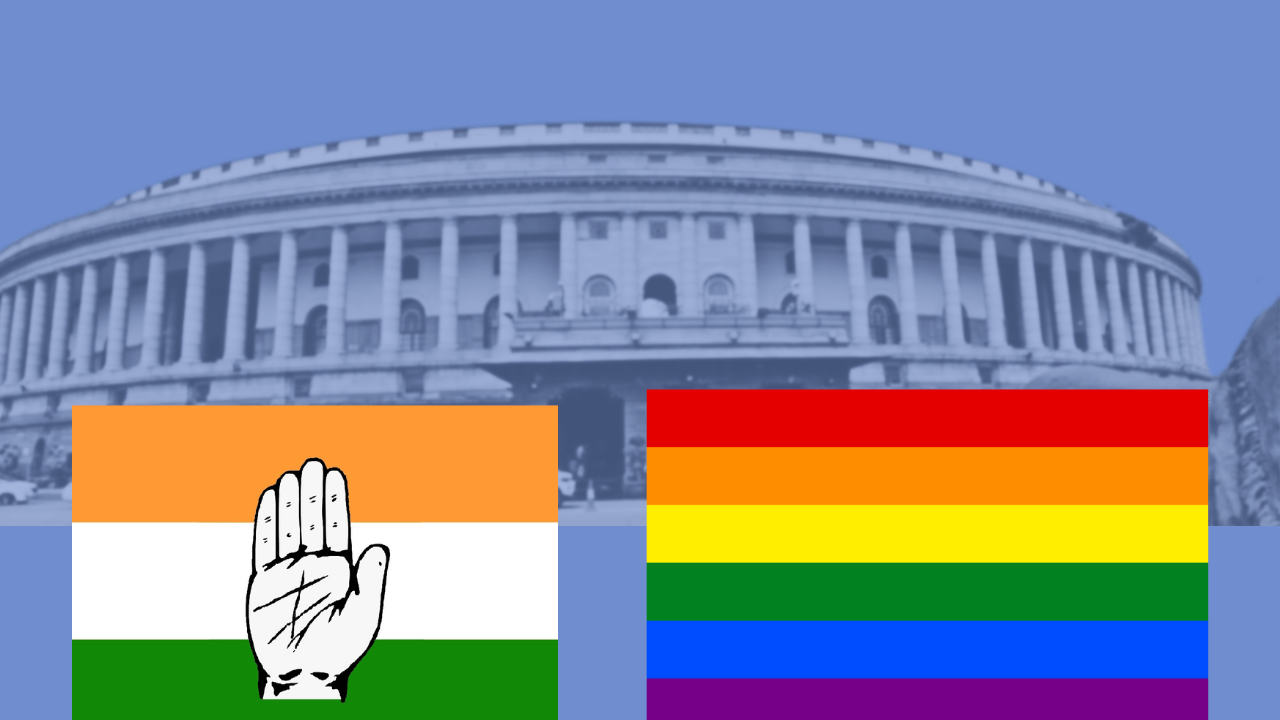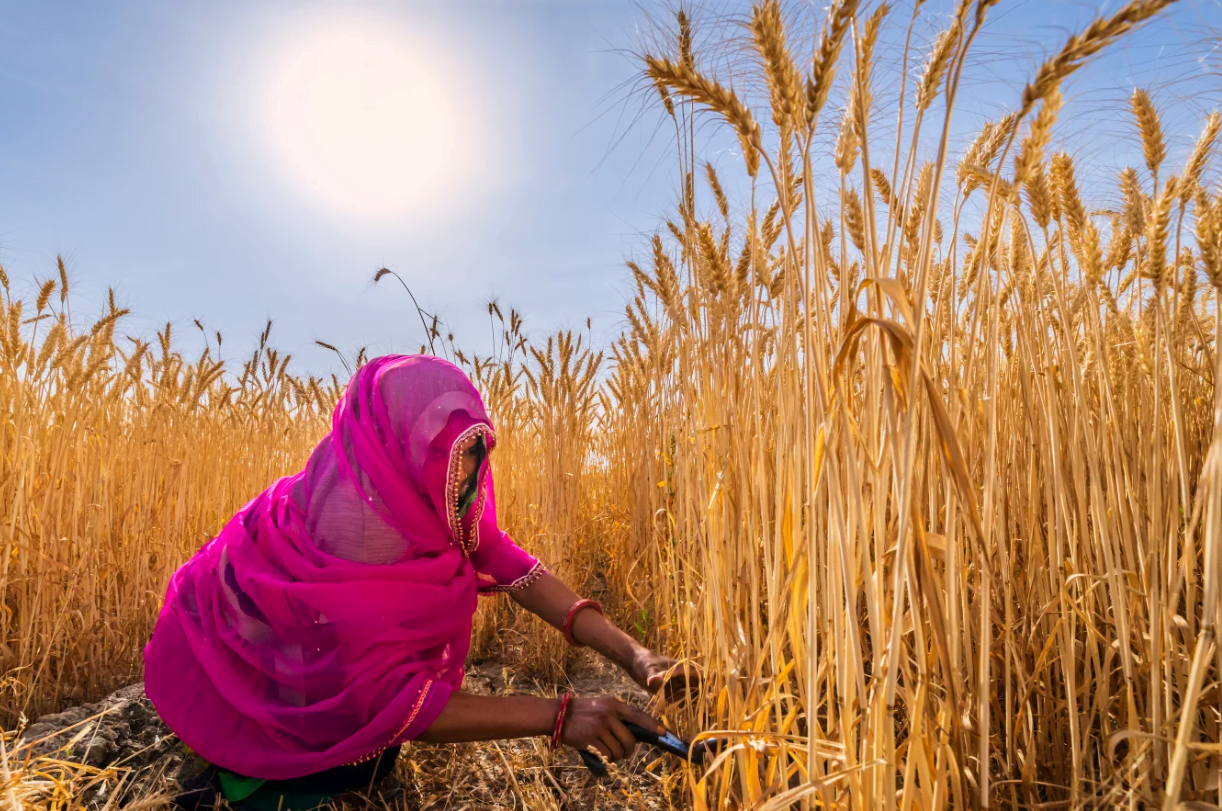Editor’s Note: FII’s #MoodOfTheMonth for July 2021 is Sustainability. We invite submissions on the diverse aspects of sustainability throughout the month. If you’d like to contribute, kindly email your articles to sukanya@feminisminindia.com
“Cotton becomes mailigē if touched by an untouchable. Silk which has been washed becomes mailigē if touched by a Shudra…A Brahmin who is in a state of mailigē relative to another Brahmin may warn a Shudra away by saying, “Do not touch me. I am in madi”…Untouchable servants are too defiling to be allowed into the dining area and thus cannot perform this task for their employer…one informant explained, he would not allow this for the fear that the Untouchable, who would “probably never have seen that much milk in his life” would feel envy and thus might make the cow’s milk supply dry up by casting the evil eye,”
writes Edward B. Harper in the paper Ritual Pollution as an Integrator of Caste and Religion, as he elaborates on how the practices of ‘cleanliness’ in the casteist system corresponded to the notion of ‘purity‘ for the oppressor caste at the expense of the marginalised.
These rules are inhumane, unjustified, and unscientific — an outright contradiction to the self-proclaimed ‘meritoriousness‘ and sense of superiority that the so-called upper castes unabashedly claim.
The marginalised do not consume resources in the capacity that the privileged do. Yet, the discriminatory system makes it the responsibility of the marginalised to ‘clean’ the waste generated by the privileged and then, the ‘cleaners’ are termed as ‘dirty‘, while the dirt-creators promulgate themselves to be ‘pure‘
While time has passed, casteism has hitherto remained a heinous, defining characteristic of this society. Upper castes continue to perpetuate casteism and consequent classism by associating the marginalised, productive castes with multitudinous, fabricated connotations on their attire, language, skin tone, diction, appearance, and background.

Here, falsified notions of ‘dirtiness‘ are used to propound oppressive hierarchies, and illustrate relationships between individual ‘cleanliness’ and household ‘purity’ without taking into account the inter-relationships and subjectivities between caste and gender.
Amidst the pandemic, while the marginalised sanitation workers and domestic workers have been struggling to get masks, gloves, and vaccines; the privileged have been shamefully discarding their used masks, saliva-struck food, and phlegm-struck tissues without covering them; thereby aggravating the risk for the marginalised; who also suffer due to inaccessible healthcare.
The history of the notions of ‘purity and pollution’
From the commencement of anthropological studies to the contemporary discourse, scholars have explicated in detail how the notions of ‘purity and pollution’ both, do not exist in absoluteness, but in fact, function in relation to discriminatory social systems.
Exploitative groups have hitherto perpetuated ‘preservation‘ of their self-proclaimed ‘purity‘ at the cost of harming the oppressed. The division of labour in the casteist society also has its foundations in the notions of ‘purity and impurity‘, where, in order for the self-proclaimed ‘pure‘ castes to stay ‘pure‘ – that is, stay unproductive without toiling and contributing; the marginalised, Scheduled Castes are made to ‘clean’ and carry their filth.
Hygiene: Not just individual, but a social and political concept
A report by Oxfam states that the poorest fifty percent of the world are responsible for only ten percent of total lifestyle consumption emissions. The marginalised do not consume resources in the capacity that the privileged do.
Yet, the discriminatory system makes it the responsibility of the marginalised to ‘clean’ the waste generated by the privileged and then, the ‘cleaners’ are termed as ‘dirty‘, while the dirt-creators promulgate themselves to be ‘pure‘.
To put the responsibility of personal hygiene on one individual without taking into account the resources at their disposal and the discrimination meted out to them by forcing them to stay in ill-functioning places, is an erroneous analysis bereft of the nuances of sustainability and social justice
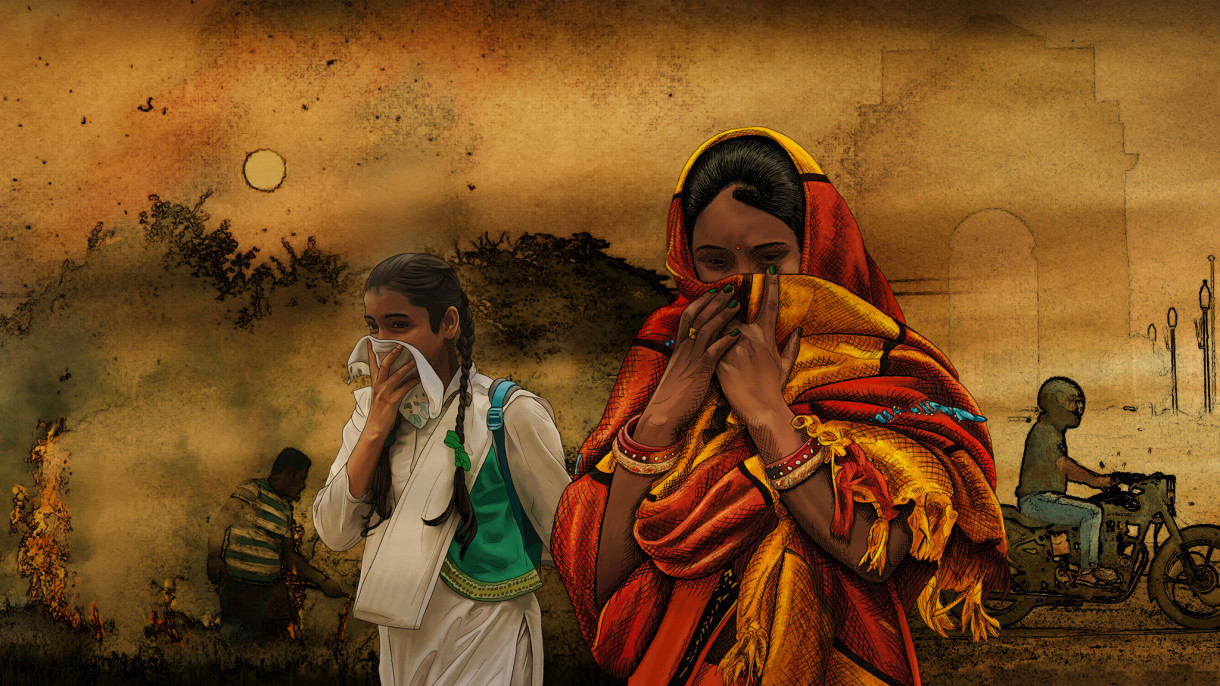
The pre-defined notions of modern, Western cleanliness focuses on individual self-care. However, in a society like ours, where caste determines access to resources of home, material, and lifestyle; self-care becomes a by-product of the systemic structure instead of a consequence of individual intention.
The marginalised, who have been forced to stay in congested colonies with common washrooms and lack of access to clean water, have been denied infrastructural admission through disastrous urban planning by oppressor castes, and, intentional neglect amounts to abuse.

To put the responsibility of personal hygiene on one individual without taking into account the resources at their disposal and the discrimination meted out to them by forcing them to stay in ill-functioning places, is an erroneous analysis bereft of the nuances of sustainability and social justice.
Also read: 5 Casteist Myths That We Need To Put To Rest
Given the status quo of socio-economic inequality, it becomes paramount to ascertain that the everyday ‘cleanliness’ practices are further exacerbated by ill-infrastructural arrangements which escalate social exclusion, and aggravate the risk of diseases for the marginalised.
The notion of ‘cleanliness’ is then manipulated as a circumlocutory tool to justify, normalise and reinforce discrimination under the disguise of hygiene.
Discrimination against domestic workers and migrant labourers
“When I first went to their house, they were like super ‘we know everything. We are the cleanest. We are this, we are that. We are Brahmins.”
Here, ‘cleanliness‘ has not only been used in the context of hygiene, but also to define boundaries within social groups, where the oppressor castes have believed that they are ‘cleaner’ by birth and blood. To uphold these agonising notions, they have continued to practice tyrannical customs such as forced endogamy and untouchability.

Studies show that 82 per cent, 81 per cent, and 64 per cent female migrant workers from the ST, SC, and OBC communities are engaged as domestic workers, construction workers, and brick kiln workers respectively.
Given it is the domestic workers who are subjected to misbehavior; the burden of being ‘clean‘ and keeping things spotless falls on marginalised women. Migrant laborers have hitherto faced exclusionary practices of ‘cleanliness’ which only got compounded in the pandemic.

The shifts in employment and unemployment according to data from the Centre for Monitoring Indian Economy (CMIE)’s Consumer Pyramids Household Survey (CPHS) database, manifest that the proportion of employed SCs, STs, and OBCs decreased by 20, 15, and 14 percentage points respectively, between December 2019 and April 2020.
While self-proclaimed, progressive upper-castes tend to justify their practices using blathering vocabulary to uphold the oppressive system, they also dismiss the angle of caste in it. By denying the main factor behind these rituals of ‘purity and pollution’, even as it continues to devastate the lives of 80 per cent of the country, they perpetuate deliberate ignorance
This data is a part of the casteist nexus, where so-called upper-castes have historically marginalised Bahujans as well as maintained closed caste networks, through referrals and family businesses on the concocted, dehumanising notions of ‘pure blood‘.

Upper-caste influencers mock indigenous Jharkhandi languages that marginalised domestic workers speak and then claim to be climate warriors when in fact, is the indigenous Jharkhandi communities, who live in consonance with nature.
Also read: Many In India Are Using The COVID-19 Pandemic As A Chance To Defend Untouchability
It is also them, because of the displacement meted out due to the casteist-capitalist structures, who are forced to work as domestic labourers. It would do casteist Instagram influencers some good to learn sustainable practices from Bahujan women.
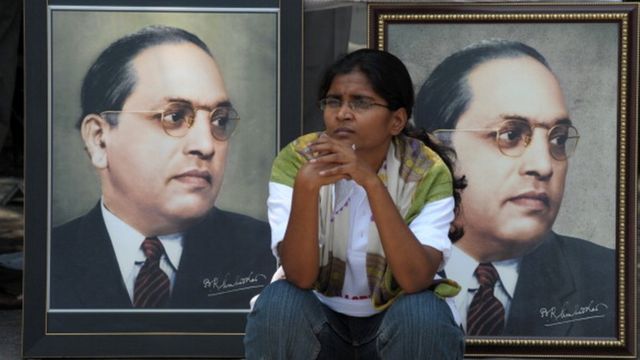
Denial of casteism is casteism of the worst kind
While self-proclaimed, progressive upper-castes tend to justify their practices using blathering vocabulary to uphold the oppressive system, they also dismiss the angle of caste in it. By denying the main factor behind these rituals of ‘purity and pollution’, even as it continues to devastate the lives of 80 per cent of the country, they perpetuate deliberate ignorance.

Bahujans who work as migrant laborers, domestic workers, and construction workers, continue to face this discriminatory treatment meted out to them.
The journey of waste does not end once it leaves the body or home of the privileged, but in fact, it begins right there. Except that it is the marginalised who have been forced to carry it ahead.
Featured Image Source: Citizens for Justice and Peace
